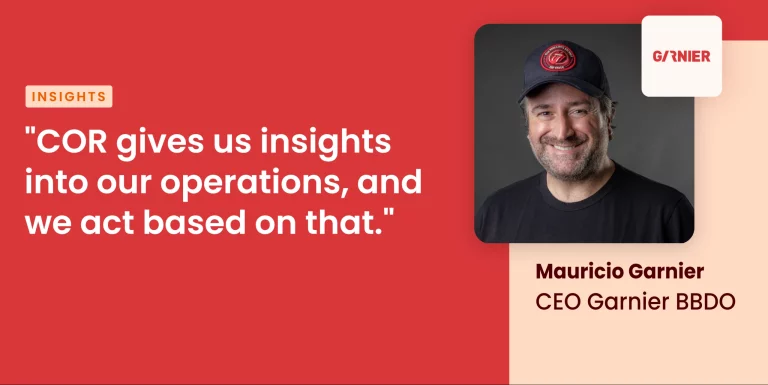Introduction
Small teams are crucial for innovation and business growth due to their agility and adaptability. However, even these teams can face obstacles if they rely solely on outdated tools like Excel for managing their projects and data. While Excel has been a popular tool for data management, its limited functionality can hinder the handling of complex projects and informed decision-making.
COR Offers the Clarity Excel Cannot: Up-to-Date Data for Informed Decisions
Fortunately, there are modern and more advanced solutions available in the market that can help small teams overcome these limitations. Here, we will explore why COR is the ally you need to overcome the obstacles that an Excel spreadsheet places in your path and maximize your business profitability.
The Importance of Avoiding Data Dispersion and Gaining Real-Time Visibility
When working with Excel, project information tends to scatter across a maze of spreadsheets and dispersed files. This fragmentation makes it difficult to centralize data and quickly access updated information. Imagine having to search for relevant data among a multitude of files, each with its own structure and format. This dispersion can cause confusion and delays in decision-making, as team members may struggle to find the information they need at the right time.
The Lack of Real-Time Visibility in Excel Can Lead to Decisions Based on Outdated Data
If you’re working on a critical project and need to make informed decisions about the next step, the information gathered from your Excel sheet might be outdated or incomplete. This can lead to misunderstandings and wrong decisions, as you are forced to rely on outdated or fragmented data.
The lack of real-time visibility can also hinder the identification of potential issues or deviations in the project. Without instant access to updated metrics, teams may overlook important warning signs, such as delivery delays or budget overruns.
COR Centralizes Information and Improves Real-Time Visibility
COR provides a single centralized location where teams can access real-time updated information, eliminating data dispersion. This tool allows teams to store and organize all project-related documents, files, and communications in one place, facilitating access and collaboration among team members.
Additionally, centralizing information helps avoid data duplication and reduces the risk of errors caused by the lack of synchronization between different files and versions.
Conclusion: Excel Disperses, COR Unifies
Excel can be a useful tool, but its limitations in data centralization and real-time visibility can affect the efficiency and decision-making of small teams. By adopting COR, teams can overcome these challenges, optimize their performance, and ensure the success of their projects through more effective and transparent management.














